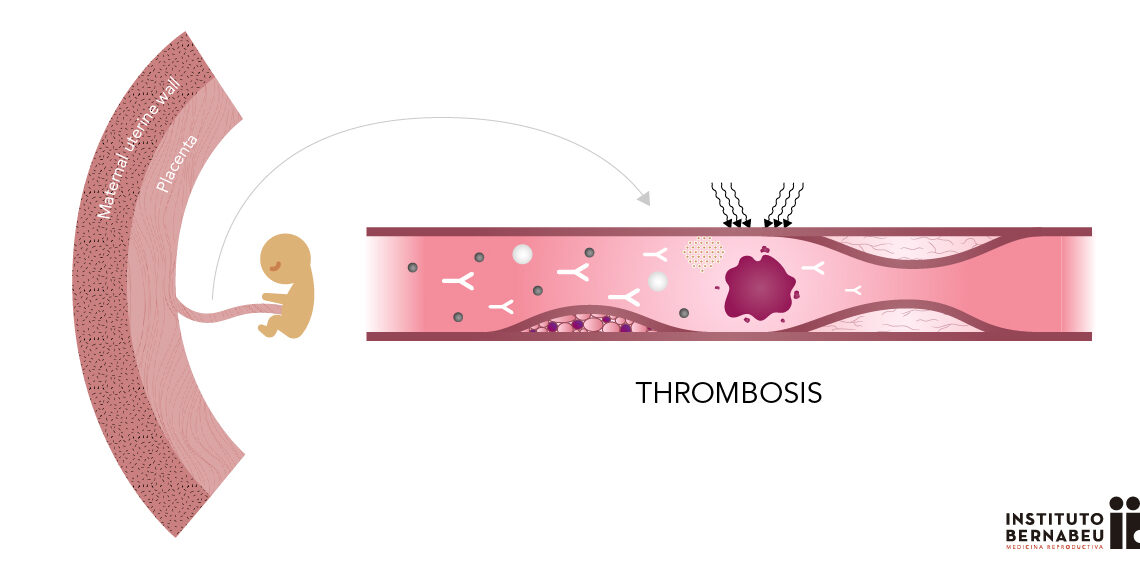
Antiphospholipid Syndrome: What is it? How does it affect pregnancy?
Antibodies are proteins produced by the immune system of our organism to combat possible infections of viral or bacterial origin. In some diseases, the immune system produces antibodies that, erroneously, attack the tissues of our own body. The result of this attack is the appearance of what are known as autoimmune diseases.
Antiphospholipid syndrome is one of these autoimmune diseases in which our antibodies (in this case called antiphospholipid antibodies) target the phospholipids that form part of the cellular membranes, destroying or altering them. Furthermore, these antiphospholipid antibodies may also interfere with correct blood circulation and normal coagulation.
Therefore, patients who present antibodies of this type have an increased tendency for the formation of clots in their blood vessels (thrombosis).
Índice
How can antiphospholipid syndrome affect patients during assisted reproduction treatments and pregnancy?
Pregnant women with antiphospholipid syndrome present a greater risk of miscarriage and intrauterine growth restriction, since clots may form in the placenta and as a consequence of this the foetus may not receive the necessary blood supply for its development. It is estimated that positive antiphospholipid antibodies may be detected in approximately 15 % of women who have had three or more miscarriages.
Antiphospholipid syndrome and in vitro fertilization
Furthermore, in the context of assisted reproduction, a situation may arise that is delicate to handle both for the patients and for the gynaecologist. This is the case of repeated implantation failure, in which a successful pregnancy is not achieved despite the transfer of a certain number of good quality embryos.
Studies show an association between antiphospholipid antibodies and repeated implantation failure. Thus, in cases where all other causes that may justify these implantation failures have been ruled out, it is advisable to determine the presence of antiphospholipid antibodies.
Antiphospholipid antibodies
These antibodies are formed by a family of more than 20 autoantibodies. But which of these is it necessary to determine? The most important are the following:
- Lupus anticoagulant.
- IgG anticardiolipin antibodies.
- The IgM anticardiolipin antibodies.
- IgG anti-?2-glycoprotein I antibodies.
- The IgM anti-?2-glycoprotein I antibodies.
What treatment should we follow?
The aim is to reduce the tendency for clot formation. In pregnant women or those who have had repeated miscarriages. This treatment resides in the administration of aspirin, heparin or a combination of both according to medical criteria.
MORE RELATED INFORMATION:
- Inmunology reproductive unit.
- Implantation failure and repeated miscarriage. Treatment options.
- Discretionary use of intralipids in patients undergoing Assisted Reproduction Techniques
- Reproductive Immunology: What it is, causes, treatment and how it can affect the achievement of pregnancy.
Dr Ana Mª Fabregat, pharmacist at Instituto Bernabeu
